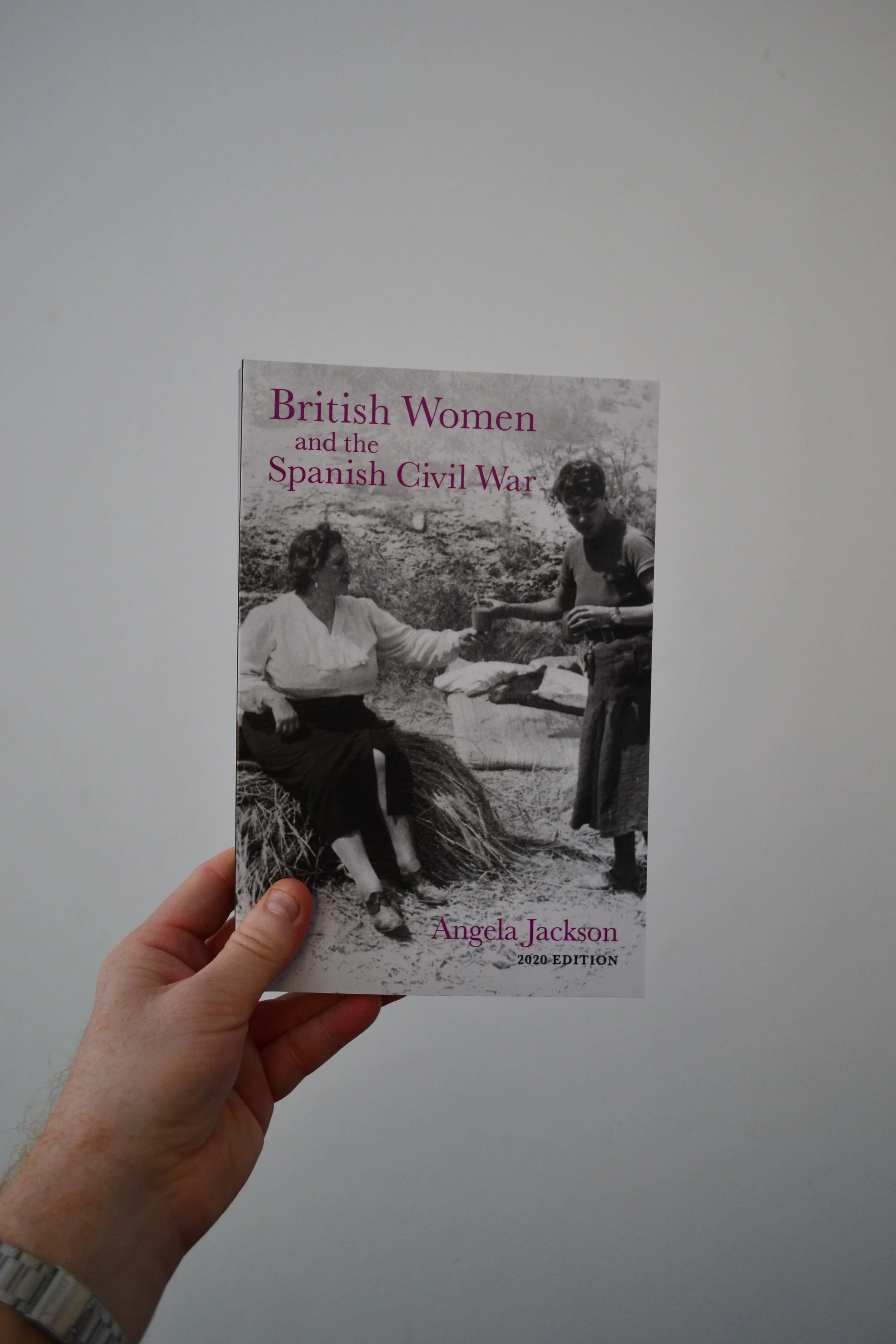 Image 1 of
Image 1 of


British Women and the Spanish Civil War - Angela Jackson
Why would young British women risk their lives by volunteering to serve in medical units during Spain’s bitter civil war? Why would so many women here in Britain dedicate their energies to campaigns and committees to help people suffering in Spain when worthy causes could be found closer to hand? The answers to these and other intriguing questions can be found in the life stories of the remarkable women who feature in this revised and updated paperback edition of Angela Jackson’s book.
In Britain, the Spanish Civil War (1936-1939) has largely been overshadowed in popular memory by the impact of the Second World War. For the many British men and women who went to Spain during this period, however, and for those who were working here in the widespread campaigns in aid of the Spanish Republic, it was an unforgettable experience. Their lives were changed for ever by a conflict that crystallised the key issues at stake in the turbulent society of Europe in the thirties.
Through oral and written narratives, this book examines the interaction between women and the war in Spain, their motivation, the distinctive form of their involvement and the effect of the war on their individual lives. These themes are related to wider issues, such as the nature of memory and the role of women within the public sphere. The extent to which women engaged with this cause surpasses by far other instances of female mobilisation in peace-time Britain. Such a phenomenon can therefore offer lessons to those who would wish to encourage a greater degree of interest amongst women in political activities today.
Why would young British women risk their lives by volunteering to serve in medical units during Spain’s bitter civil war? Why would so many women here in Britain dedicate their energies to campaigns and committees to help people suffering in Spain when worthy causes could be found closer to hand? The answers to these and other intriguing questions can be found in the life stories of the remarkable women who feature in this revised and updated paperback edition of Angela Jackson’s book.
In Britain, the Spanish Civil War (1936-1939) has largely been overshadowed in popular memory by the impact of the Second World War. For the many British men and women who went to Spain during this period, however, and for those who were working here in the widespread campaigns in aid of the Spanish Republic, it was an unforgettable experience. Their lives were changed for ever by a conflict that crystallised the key issues at stake in the turbulent society of Europe in the thirties.
Through oral and written narratives, this book examines the interaction between women and the war in Spain, their motivation, the distinctive form of their involvement and the effect of the war on their individual lives. These themes are related to wider issues, such as the nature of memory and the role of women within the public sphere. The extent to which women engaged with this cause surpasses by far other instances of female mobilisation in peace-time Britain. Such a phenomenon can therefore offer lessons to those who would wish to encourage a greater degree of interest amongst women in political activities today.
Why would young British women risk their lives by volunteering to serve in medical units during Spain’s bitter civil war? Why would so many women here in Britain dedicate their energies to campaigns and committees to help people suffering in Spain when worthy causes could be found closer to hand? The answers to these and other intriguing questions can be found in the life stories of the remarkable women who feature in this revised and updated paperback edition of Angela Jackson’s book.
In Britain, the Spanish Civil War (1936-1939) has largely been overshadowed in popular memory by the impact of the Second World War. For the many British men and women who went to Spain during this period, however, and for those who were working here in the widespread campaigns in aid of the Spanish Republic, it was an unforgettable experience. Their lives were changed for ever by a conflict that crystallised the key issues at stake in the turbulent society of Europe in the thirties.
Through oral and written narratives, this book examines the interaction between women and the war in Spain, their motivation, the distinctive form of their involvement and the effect of the war on their individual lives. These themes are related to wider issues, such as the nature of memory and the role of women within the public sphere. The extent to which women engaged with this cause surpasses by far other instances of female mobilisation in peace-time Britain. Such a phenomenon can therefore offer lessons to those who would wish to encourage a greater degree of interest amongst women in political activities today.
